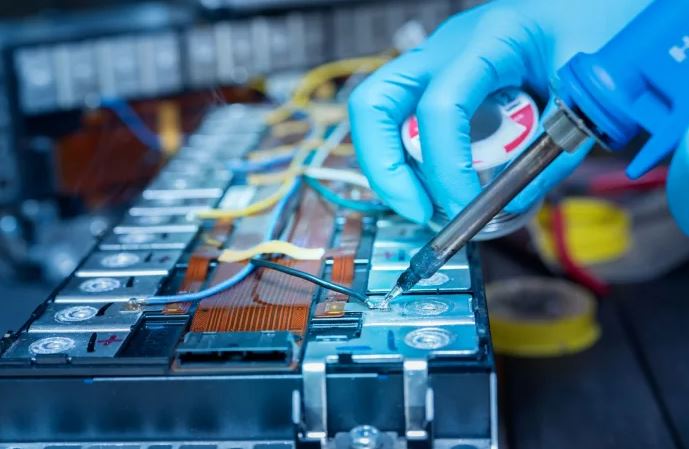Advancing EV Battery Technology: HOS-PFM Coating and Breakthroughs for Longer-lasting and Sustainable Batteries
Exciting developments are underway in the field of electric vehicle (EV) batteries as scientists at Lawrence Berkeley National Laboratory have made a groundbreaking discovery. They have developed a revolutionary polymer coating known as HOS-PFM that has the potential to transform the manufacturing process of EV batteries, making them more cost-effective and longer-lasting.
HOS-PFM is an exceptional polymer coating as it can conduct both electrons and lithium ions simultaneously. While the technical aspects may be complex for non-experts, the key takeaway is that this coating exhibits excellent compatibility with aluminum and silicon electrodes. These materials are abundant and economical, but they tend to degrade faster compared to the more expensive graphite electrodes that are commonly used in existing EV batteries.
The introduction of HOS-PFM could be a game-changer. Researchers behind this innovation claim that it could extend the average lifespan of lithium-ion batteries from 10 to 15 years. By utilizing less expensive and more readily available materials, car manufacturers could rapidly increase the production of affordable EV models, making electric mobility accessible to a wider consumer base.
Gao Liu, one of the lead scientists involved in the project, stated, “The advance opens up a new approach to developing EV batteries that are more affordable and easy to manufacture.” This breakthrough has the potential to revolutionize the EV industry by driving down costs and promoting the widespread adoption of electric vehicles.
While EVs are already recognized for their environmental benefits compared to traditional combustion-engine vehicles, the production of lithium-ion batteries has its own set of environmental challenges, particularly related to lithium mining. Scientists are actively exploring ways to maximize the longevity of lithium-ion batteries and minimize their environmental impact.
HOS-PFM is not the only scientific breakthrough transforming the landscape of lithium-ion battery production. A Chinese company recently introduced a sodium-ion battery, eliminating the need for lithium mining altogether. This development showcases the potential for alternative battery technologies to contribute to a more sustainable future.
Moreover, several companies are making significant progress in the field of lithium recycling. The ability to efficiently recycle lithium-ion batteries holds tremendous potential for reducing waste, conserving resources, and mitigating the environmental impact of battery production. These recycling efforts will help establish a circular economy for lithium, ensuring its sustainable use in the production of EV batteries.
The combined advancements in polymer coatings, sodium-ion batteries, and lithium recycling signify the dedication and progress within the scientific community to address the environmental challenges associated with EV batteries. These breakthroughs offer promising solutions to enhance the durability, affordability, and sustainability of EVs, making them a compelling choice for consumers and further accelerating the transition to a greener transportation future.
As research and development in battery technology continue to evolve, it is clear that the future of EVs is full of possibilities. The introduction of HOS-PFM and other groundbreaking innovations pave the way for more accessible, efficient, and eco-friendly electric vehicles. With each scientific breakthrough, we move closer to a sustainable transportation system that reduces greenhouse gas emissions, curbs reliance on fossil fuels, and preserves our planet for future generations.

